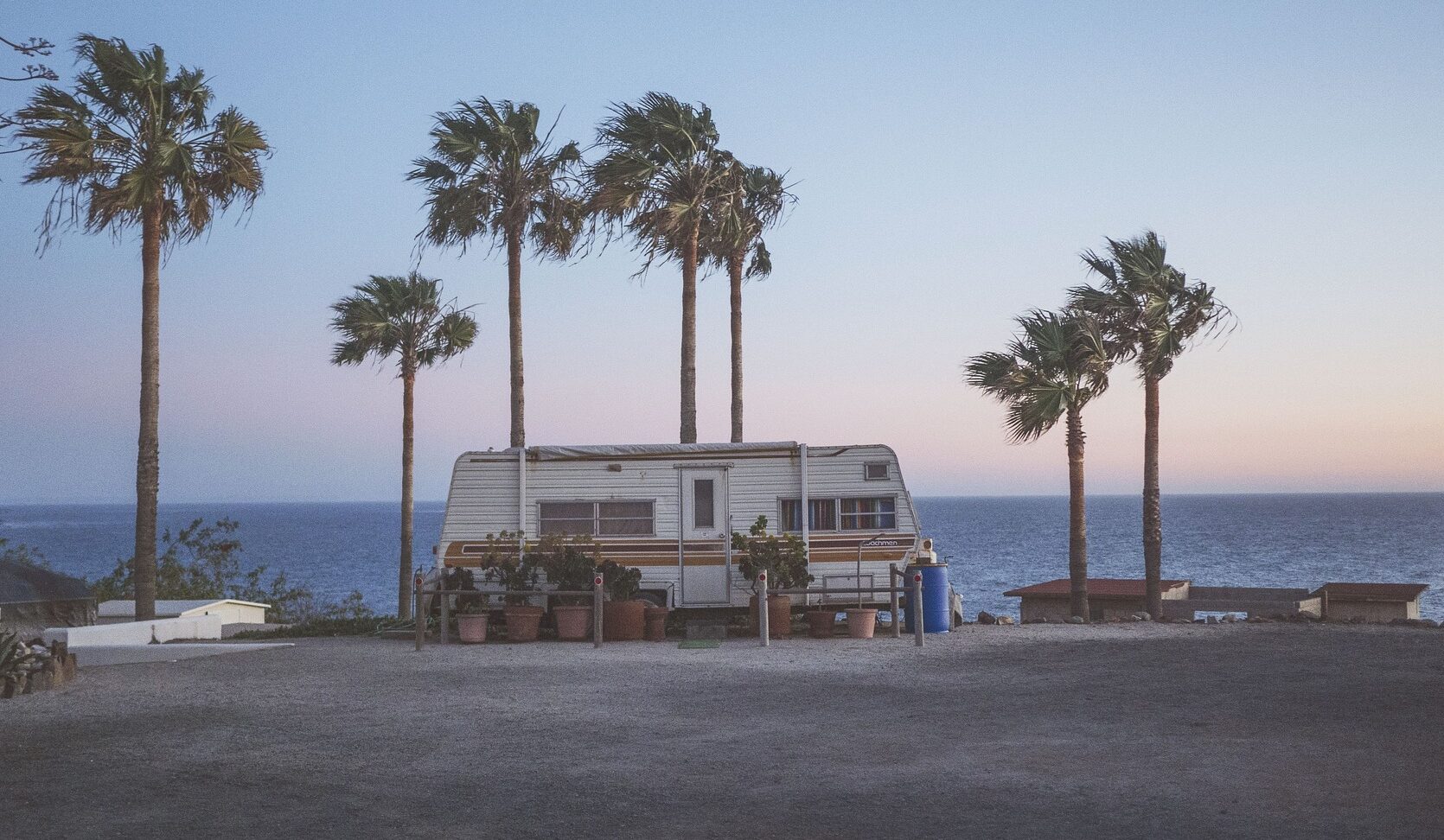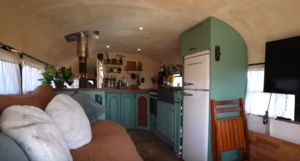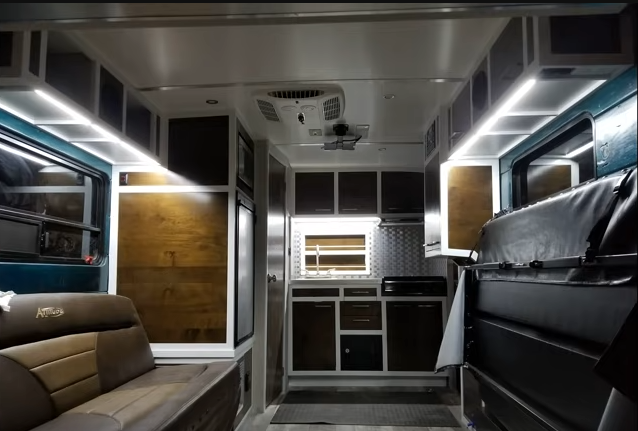The next stop in our exploration of nomad housing are campers. Unlike car and van camping, you are not going to be stealth with any of these options (although you might manage it in the cargo trailer)—no living in the parking lot at your office or in a friend’s driveway. But the benefit to these is that they provide more interior space—including interior kitchens, potties, and showers—which can be a necessity if you are a large person or claustrophobic.
Pro-Tip: A “wet bath” is a bathroom where the shower is not separate from the other fixtures (often you can sit on the toilet while you shower). A “dry bath” is a bathroom with a shower stall and/or tub that you can use without getting the rest of the bathroom wet.
With the exception of cargo trailers, these are more pricey than do-it-yourself car and van campers, but if you don’t have the skills necessary to build out what you need, the space to work in or the tools necessary to do it, or you need to get a new place to live as of yesterday, then it can be worth it to you to trade money for someone else’s time and labor to create your mobile living space.
Even if you have to pay to be at a campground every night and you have to finance your camper, the combined total expense is less than rent in most places today. If you can make it work for 2 or 3 years, you can save up a reasonable amount of money or pay down debt, and at the end of your camper period, provided you took care of it, you can sell the camper and get some of your money back out of it. You can’t do that when you move out of a rented apartment.
Pro Tip: Most campgrounds, both public and private, have a limit on the number of consecutive nights you can stay there. When you run out of time, of course you can switch to another campground, but if another campground is not convenient, or it’s too expensive, you can spend a night at a truck stop, then go back to your preferred campground to start the clock over again.
- Micro Campers for Motorcycles and Cars
- Cargo Trailers
- Truck Slide-Ins
- Small Campers for SUVs and Small Trucks
- Full-Size Campers and Fifth Wheels
- Motorhomes
If you are wondering what it costs to live and travel in a camper, this video has a breakdown of one woman’s travel budget. She domiciles in Colorado, which has some hellacious insurance and car registration rates, making her expenses worse than my bare bones budget with a house. If you are from a state with a high cost of living, like Colorado, this may sound like a great budget, but if you’re from a low cost of living state, like me, this may sound terrible. But don’t let her numbers put you off. Just go through the line items on her budget and adjust them for where you will live (or where you want to domicile if you plan on moving around). And I recommend watching a lot more of her videos about living full-time in an RV, especially the ones about working on the road:



NEVER quit trying. Onward!